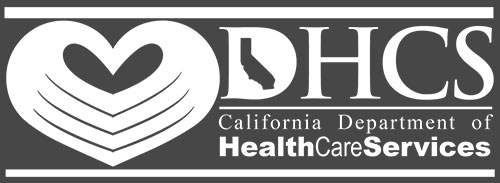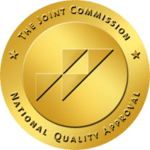
What Does Evidence-Based Treatment Mean?
Evidence-based treatment involves methods for treating addiction that result in the best possible outcome for a long-term successful recovery. These methods have been proven to work with a track record of success stories, and actual scientific evidence to back up its claims.
Many treatment centers boast evidence-based treatment as an offering, but few are able to provide it to its full capability. Evidence-based treatment involves an individualized approach and much more.
Evidence-Based Treatment: The Total Immersion Method
The Channel Islands Total Immersion Method revolves around the client, and it continues to strengthen and begin to establish that all-important bond of trust. Our method employs recent innovative advances in medically-assisted detox and treatment, evidence-based modalities, specialized individual treatment plans, scientific neurobiology, humanistic therapies and a unique Family Program that has earned accolades from clients and their families.
Complementing these vital treatments and therapies is our powerful, unwavering ring of support. Through these collaborative efforts, we help the client to uncover the underlying issues of their addiction. Our ultimate goal is for every individual to leave the facility strong and confident, with a practical plan for lasting recovery.
Examples of Evidence-Based Treatment Therapies
The cornerstone of the Total Immersion Method coinciding with our excellent support team is a wide range of proven, evidence-based therapies and treatments to help make our clients well again. They work individually and in concert with each other, to magnify positive outcomes.
- Biofeedback/Interpersonal Neurobiology
- Humanistic Therapies
- CBT
- Internal Locus Control
- DBT
- Relapse Prevention
- Group Therapy
- Self-Hypnosis
- Hemi-Sync Sound Therapy
Cognitive Behavioral Therapy
According to PsychCentral, Cognitive behavioral therapy (also known as CBT) is a short-term, goal-oriented psychotherapy treatment that takes a hands-on, practical approach to problem-solving. Its goal is to change patterns of thinking or behavior that are behind people’s difficulties, and so change the way they feel. It is used to help treat a wide range of issues in a person’s life, from sleeping difficulties or relationship problems to drug and alcohol abuse or anxiety and depression.
CBT works by changing people’s attitudes and their behavior by focusing on the thoughts, images, beliefs, and attitudes that are held (a person’s cognitive processes) and how these processes relate to the way a person behaves, as a way of dealing with emotional problems.
Individual and Group Therapy
Individual therapy is important for being able to dive deep and explore the root cause of addiction. Addiction isn’t ever alone — in fact, it is merely a symptom of something deeper. This can include trauma, issues during childhood, or a mental illness that has been undiagnosed or diagnosed. By being able to freely discuss these issues, individuals are better able to learn methods to overcome their negative thoughts or feelings and learn to move forward and cope in healthy ways.
Group therapy helps clients to relate to each other, exchange advice, and lean on each other for support. It can be very therapeutic for individuals to share their stores and have others relate. Addiction can make people feel very alone and isolated, so group therapy helps to teach people that they are not alone and they can get through tough times with support.
Dialectical Behavioral Therapy
According to Psychology Today, Dialectical behavior therapy (also known as DBT) provides clients with new skills to manage painful emotions and decrease conflict in relationships. DBT specifically focuses on providing therapeutic skills in four key areas.
- Mindfulness. Mindfulness focuses on improving an individual’s ability to accept and be present in the current moment rather than dwelling or thinking too much ahead.
- Distress tolerance. This is geared toward increasing a person’s tolerance of negative emotion, rather than trying to escape from it. In short, being able to face your fears or triggers and learn to overcome them, rather than turning to substances.
- Emotion regulation. Emotion regulation is different strategies to manage and change intense emotions that are causing problems in a person’s life. These can include anger, sadness, or overthinking.
- Interpersonal effectiveness. This consists of techniques that allow a person to communicate with others in a way that is assertive, maintains self-respect, and strengthens relationships. Addiction can cause individuals to become untrustworthy of others, and this helps repair that.
About Channel Islands Rehab
Addiction does not have a one-size-fits-all treatment method. Evidence-based therapy is best achieved through an individualized approach, such as The Channel Island Rehab Total Immersion Method. It is not an out-of-the-box approach to addiction treatment, like many other rehabs. It is unique in that it involves specifically around you and your individual, unique needs. No two people’s journeys are the same at Channel Islands Rehab, allowing for the best chances for long-term success.
Complementing these vital treatments and therapies is our powerful, unwavering ring of support. Through these collaborative efforts, we help you to uncover the underlying issues of your addiction. Our ultimate goal is for you to leave the facility strong and confident, with a practical plan for lasting recovery.
At Channel Islands Rehab Treatment Center, we work to make your residential stay pleasant and stress-free. Our beautiful, calming home, located only one-half block from the ocean, gives you an opportunity to relax and reassess your direction in life. The facility overlooks the harbor, providing the most appealing of settings for reconnecting with yourself.
For more information, visit channelislandsrehab.com








